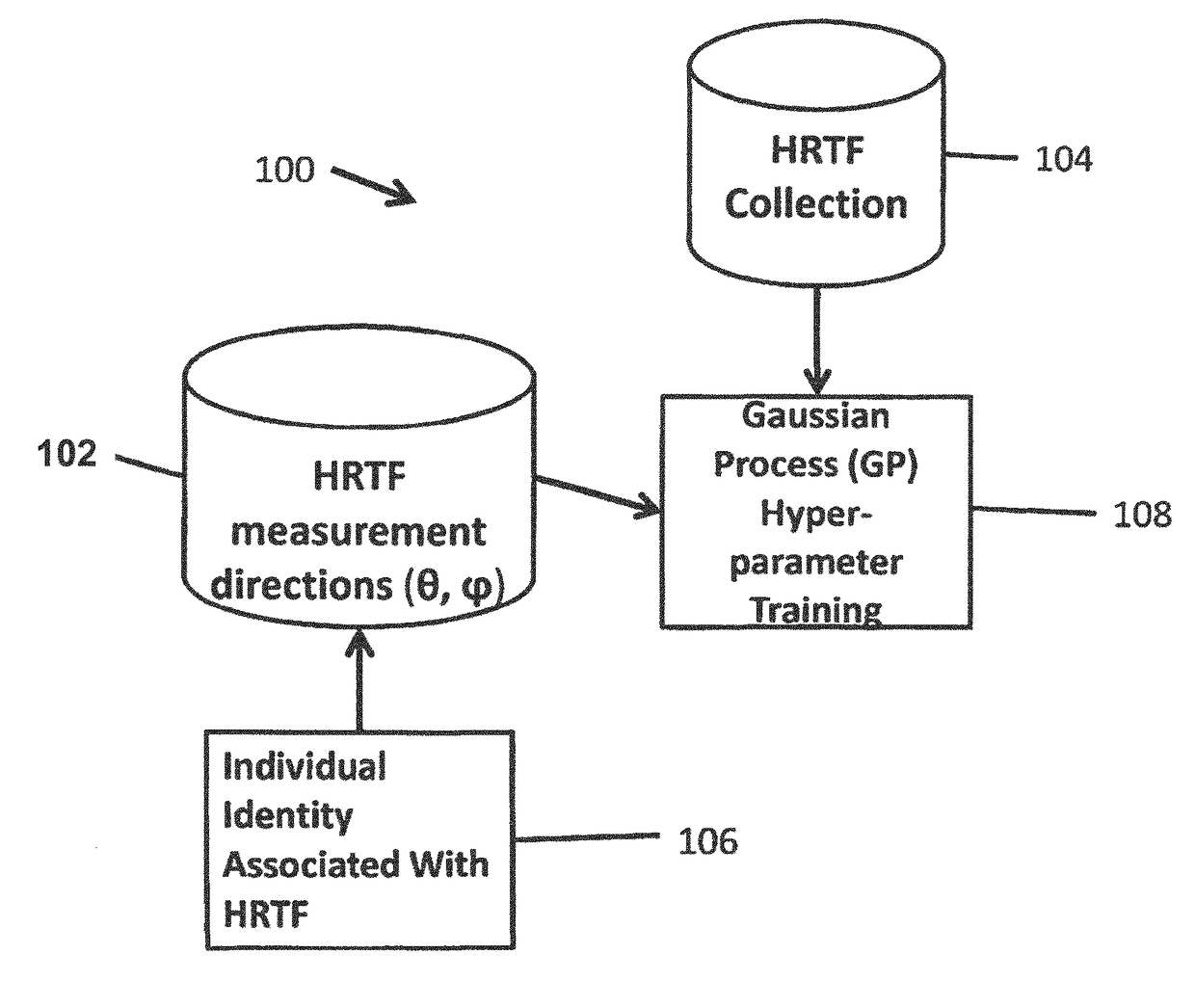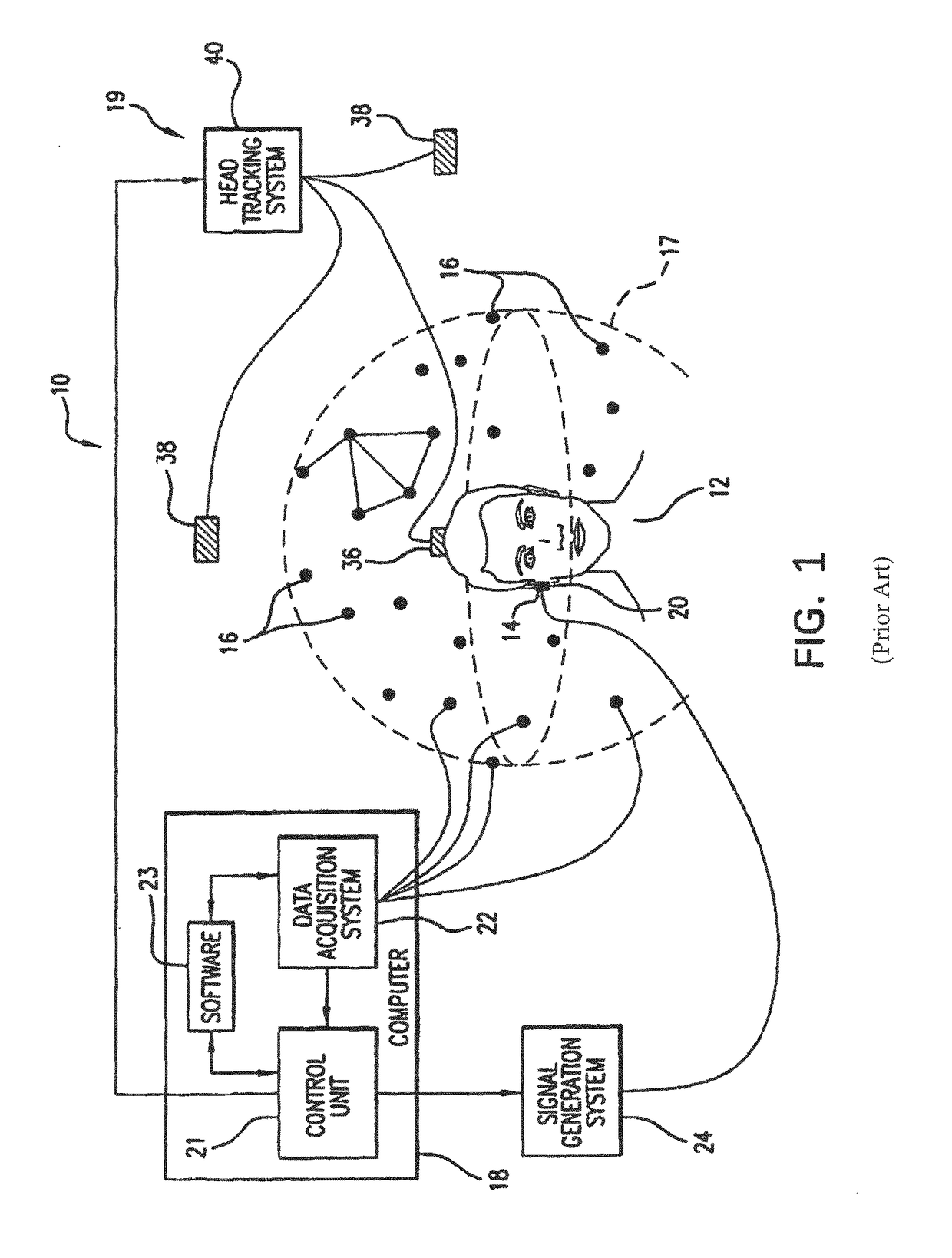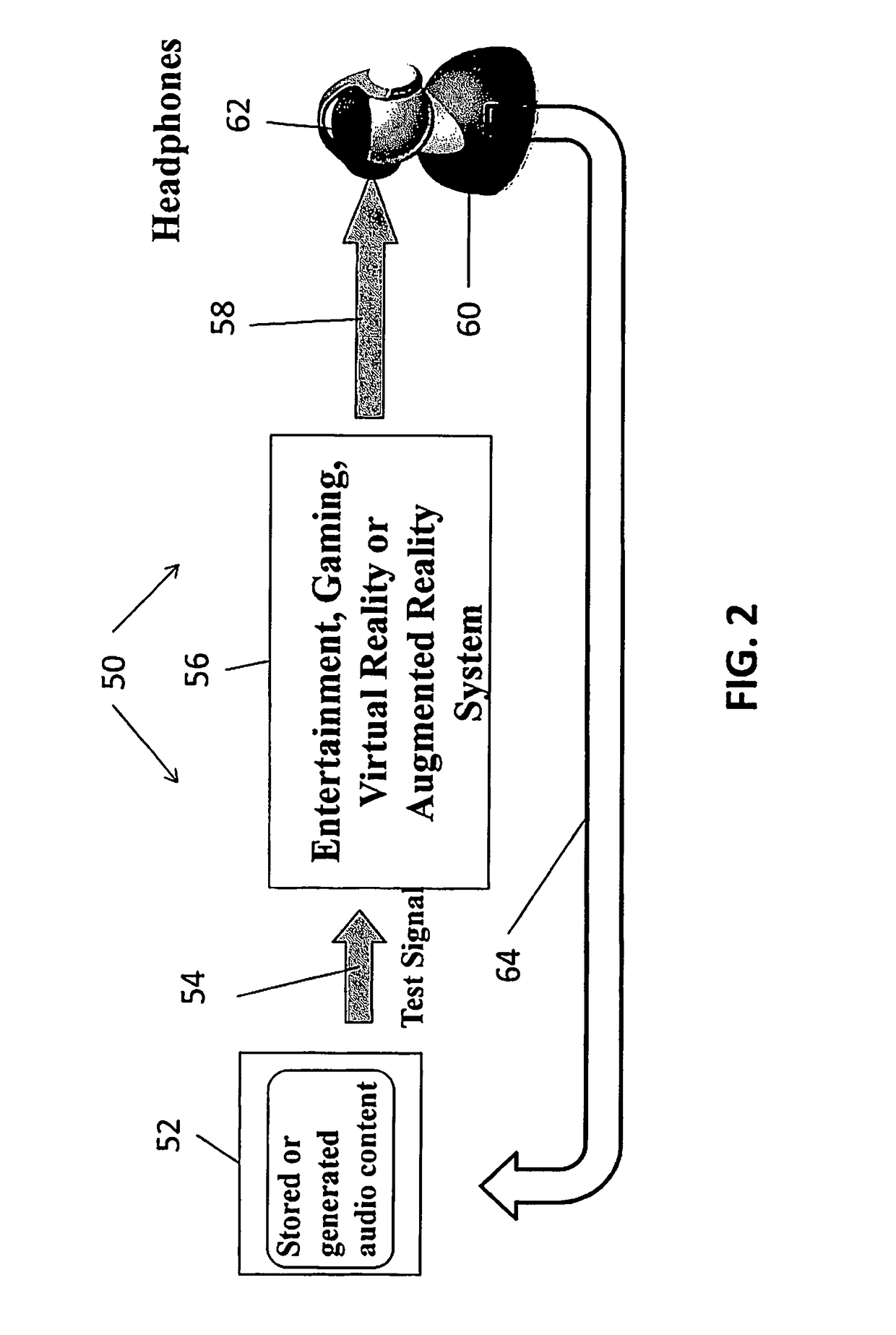Statistical modelling, interpolation, measurement and anthropometry based prediction of head-related transfer functions
a transfer function and statistical modelling technology, applied in the field of interpolation or measurement of head related transfer functions, can solve the problems of inability to obtain hrtfs for a subject, and the hrtfs show considerable variability between individuals
- Summary
- Abstract
- Description
- Claims
- Application Information
AI Technical Summary
Benefits of technology
Problems solved by technology
Method used
Image
Examples
Embodiment Construction
[0038]The embodiments of the present disclosure relate to a non-parametric spatial-frequency HRTF representation based on Gaussian process regression (GPR) that addresses the aforementioned issues. The model uses prior data (HRTF measurements) to infer HRTFs for previously unseen locations or frequencies for a single-subject. The interpolation problem between the input spatial-frequency coordinate domain (ω,θ,φ) and the output HRTF measurement H(ω,θ,φ) is non-parametric but does require the specification of a covariance model, which should reflect prior knowledge. Empirical observations suggest that the HRTF generally varies smoothly both over space and over frequency. In the model, the degree of smoothness is specified by the covariance model; this property also allows us to extract spectral features in a novel way via the derivatives of the interpolant. While the model can utilize the full collection of HRTFs belonging to the same subject for inference, it can also specify any sub...
PUM
 Login to View More
Login to View More Abstract
Description
Claims
Application Information
 Login to View More
Login to View More - R&D
- Intellectual Property
- Life Sciences
- Materials
- Tech Scout
- Unparalleled Data Quality
- Higher Quality Content
- 60% Fewer Hallucinations
Browse by: Latest US Patents, China's latest patents, Technical Efficacy Thesaurus, Application Domain, Technology Topic, Popular Technical Reports.
© 2025 PatSnap. All rights reserved.Legal|Privacy policy|Modern Slavery Act Transparency Statement|Sitemap|About US| Contact US: help@patsnap.com



